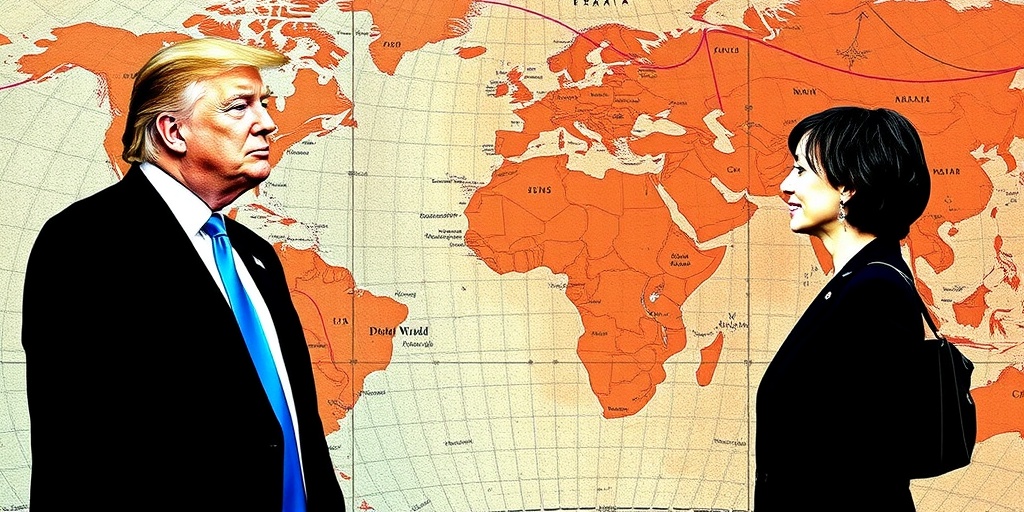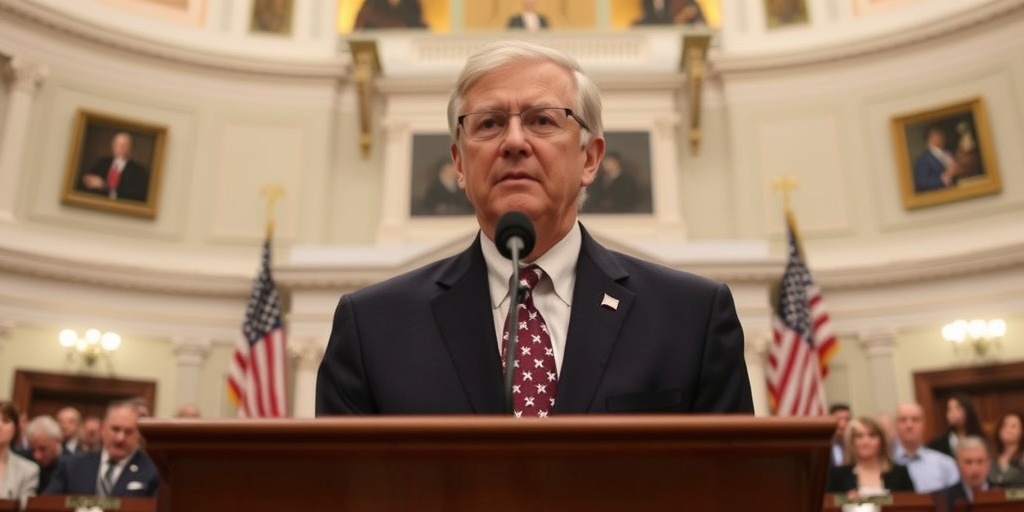Now Reading: Trump Administration Readies to Reinstate and Expand Travel Bans
-
01
Trump Administration Readies to Reinstate and Expand Travel Bans
Trump Administration Readies to Reinstate and Expand Travel Bans

Trump Administration Moves Towards Broader Travel Ban Targeting Specific Countries
The Trump administration is reportedly in the final stages of implementing a new travel ban for citizens from certain nations, which would expand upon the travel restrictions issued during President Trump’s first term. According to two officials who spoke on the condition of anonymity, a draft proposal is currently circulating within the executive branch that outlines a "red" list of countries from which citizens could be barred entry into the United States.
Historically, countries that have faced travel restrictions under Trump’s previous bans include Cuba, Iran, Libya, North Korea, Somalia, Sudan, Syria, Venezuela, and Yemen. This latest proposal suggests that Afghanistan may be added to this list, with officials indicating that citizens from that nation could face a complete travel ban.
Shawn VanDiver, the president of a nonprofit organization dedicated to resettling Afghans who assisted U.S. forces during the Afghanistan War, confirmed that his organization has been informed of the impending travel ban on Afghan citizens. In response, the group issued an urgent statement encouraging Afghans with valid U.S. visas currently outside the country to return immediately. Subsequent reports have corroborated the inclination to recommend a total travel ban for Afghanistan.
In addition to the proposed red-list countries, the draft also includes an "orange" category of nations where access would be limited but not entirely prohibited. For these countries, only specific types of visas may be issued — for instance, for affluent individuals traveling for business purposes rather than for tourists or immigrants. Visa lengths could also be shortened, and applicants would be required to attend in-person interviews.
The draft further categorizes countries into a third "yellow" category, which would be given a 60-day period to address perceived deficiencies before risking an addition to the red or orange categories. Issues such as inadequate sharing of traveler information with the U.S., insufficient security measures for passport issuance, or the selling of citizenship to individuals from banned countries could justify a country’s placement in these categories.
Uncertainty remains regarding whether individuals with existing visas may be exempted from these travel bans or if their visas would simply be canceled. Thousands of Afghans have already been approved for entry to the United States under special immigrant visas for their roles in assisting U.S. military forces, and questions linger about how a new travel ban could affect these individuals. There’s also ambiguity surrounding the impact on green card holders, who possess permanent residency status in the country.
Currently, approximately 200,000 Afghans remain in their home country, while an additional 51,000 are outside Afghanistan, with many located in Pakistan. Many of these individuals are prepared for travel, having already arranged housing in the United States, according to VanDiver, a Navy veteran and president of AfghanEvac, the nonprofit organization he leads. "This is the most vetted population that there has ever been," he said, adding that numerous veterans who once supported Trump now feel betrayed upon hearing news of a potential new travel ban for their Afghan allies. "They’re saying, ‘This isn’t what I voted for,’" he lamented.
Trump’s push for enhanced travel restrictions has deep historical precedents, rooted in his campaign rhetoric calling for a complete halt to the entry of Muslims into the United States until a clearer understanding of security issues could be established. This led to a series of travel bans beginning in January 2017 after his inauguration, initially aimed at Muslim-majority countries and later expanded to include other lower-income and predominantly nonwhite nations.
In the aftermath of Trump’s first travel ban, which was implemented abruptly and led to widespread chaos and protests at airports, subsequent iterations of the ban were subject to legal challenges that culminated in a modified version being approved by the Supreme Court.
Upon taking office, President Joe Biden rescinded the travel bans as one of his initial executive actions, ending what he referred to as “discriminatory bans” and restoring a system of individualized vetting. He characterized the travel restrictions as “just plain wrong” and claimed they undermined both national security and the United States’ historical role as a welcoming nation for people of all faiths.
As of now, the State Department continues to process and finalize the draft of the new travel guidelines in compliance with Trump’s directives, outlining which countries “warrant a partial or full suspension” of admissions. The outcomes of these deliberations remain uncertain as the administration approaches a deadline in about two weeks.
Stay Informed With the Latest & Most Important News
Previous Post
Next Post
-
 01New technology breakthrough has everyone talking right now
01New technology breakthrough has everyone talking right now -
 02Unbelievable life hack everyone needs to try today
02Unbelievable life hack everyone needs to try today -
 03Fascinating discovery found buried deep beneath the ocean
03Fascinating discovery found buried deep beneath the ocean -
 04Man invents genius device that solves everyday problems
04Man invents genius device that solves everyday problems -
 05Shocking discovery that changes what we know forever
05Shocking discovery that changes what we know forever -
 06Internet goes wild over celebrity’s unexpected fashion choice
06Internet goes wild over celebrity’s unexpected fashion choice -
 07Rare animal sighting stuns scientists and wildlife lovers
07Rare animal sighting stuns scientists and wildlife lovers





















